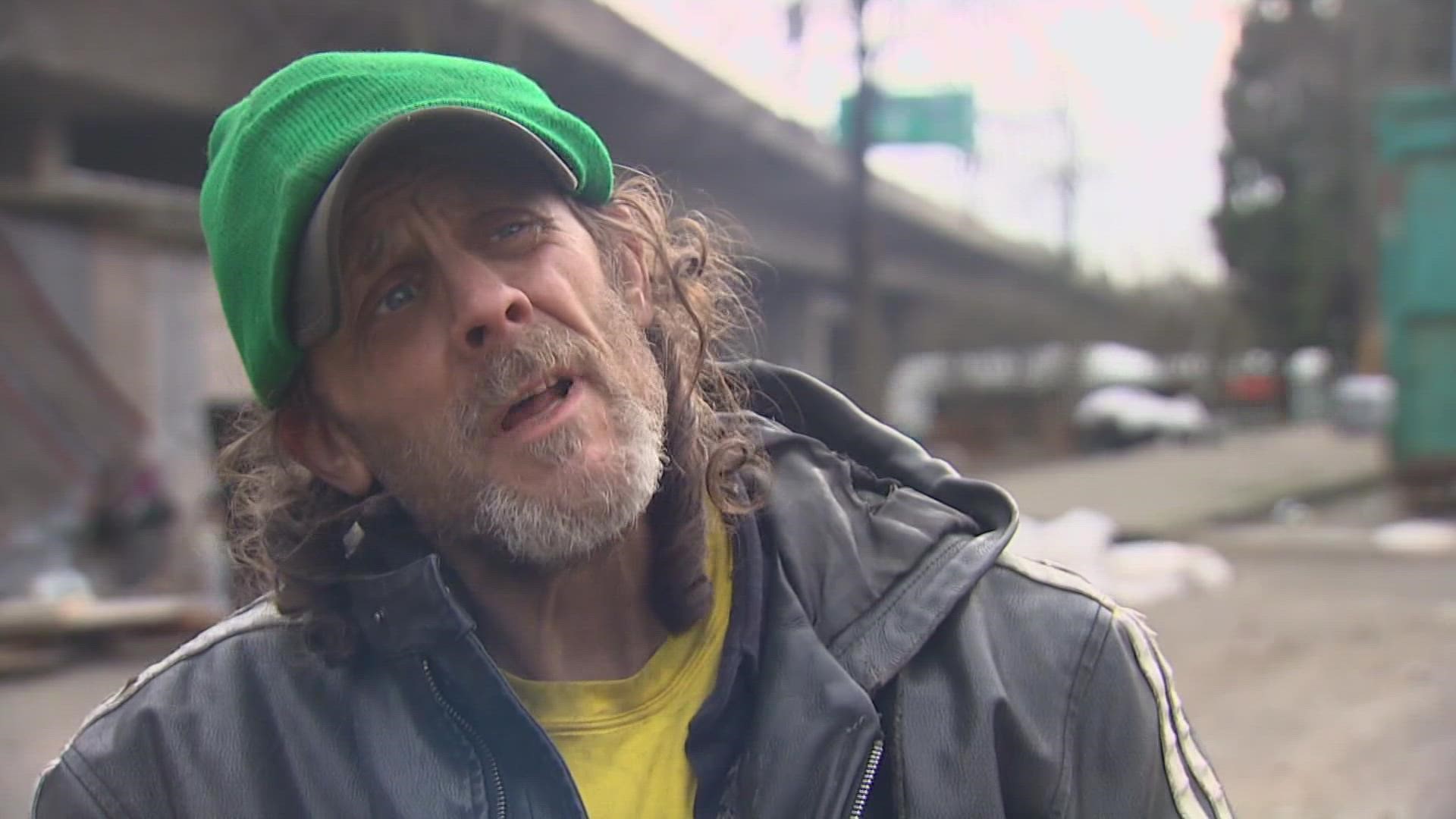TACOMA, Wash. — Virginia Basher volunteers her time to help those living in the I-705 encampment.
Last Friday, the City of Tacoma began a sweep of the encampment, but Basher says people are already starting to return.
“A lot has gotten picked up so far, a lot actually,” Basher said. “In the beginning, up here was completely cleaned off, but now there’s people again up there camping out.”
Basher said many people make their way back to the encampment because it’s their only option.
“Most of them don’t have a place to go, so a lot of them are going to find somewhere else to camp out and do the same thing. It’s just gonna be an ongoing thing until they take care of this whole thing where they build more facilities," Basher said. "They need more facilities and tiny homes and motels.”
Dean Hall said he’s seen this before - an encampment is swept and people make their way around different areas of the city before eventually coming back.
He calls it the "Tacoma shuffle.”
"They’d shuffle them from the Mission to the Nativity House, to St. Joe’s or something,” Hall said. “There’d literally be lines of people, homeless folks going from place to place, kind of incognito.”
The City of Tacoma said it has offered to provide resources and services, but Basher said former inhabitants of the I-705 encampment have turned the offer down due to the strict regulations that come with the services.
“The rules, the stuff they have to deal with inside the mission. They go in at 6:30 at night, then they’re kicked out by 6:30 in the morning,” Basher said. “I’d like to get them in shelters where they’re there all day long, going to mental health, getting them some drug treatment. But they’re just thrown back out on the streets until the evening time then they got somewhere to sleep, and it’s the same thing every day.”
Advocates are now calling for more comprehensive services for Tacoma’s most vulnerable.
Otherwise, Hall warns that many will end up being swept into a vicious cycle that some don’t escape until it’s too late.
“Some die. Some go back to drugs," Hall said. "Some go to their mom’s house. Some don’t have family. They just start all over again somewhere else.”

